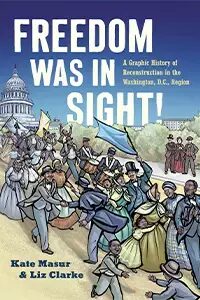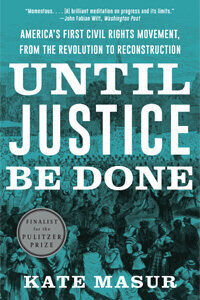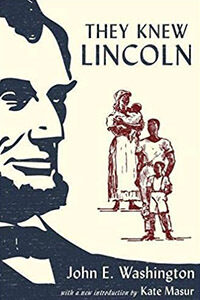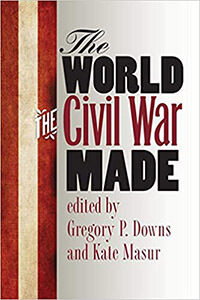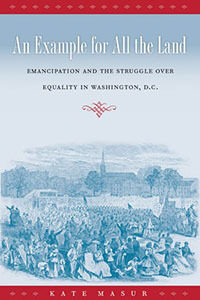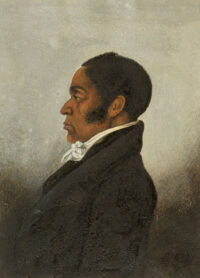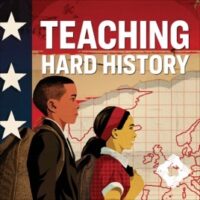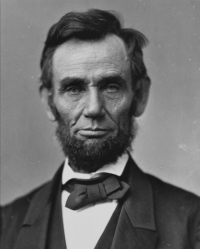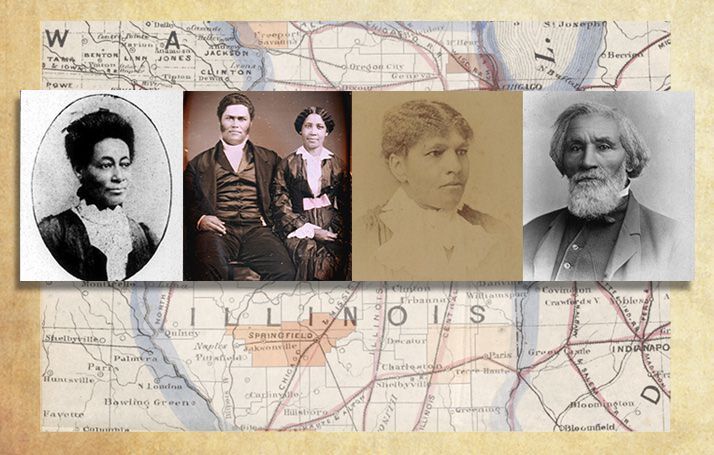Professor of History, Northwestern University
I regularly teach undergraduate courses on the Civil War and Reconstruction and U.S. Women's History. I've also taught classes on the History of the Right to Vote in the U.S., Abraham Lincoln in History in Memory, the antislavery movement, and more. One of my favorite aspects of teaching is advising student research projects-- for both undergrads and graduate students. My Ph.D. students study a wide range of topics, mostly in nineteenth-century U.S. history, including African American history, the Civil War and Reconstruction, southern history, the history of education, women's history, and voting rights. I always enjoy and learn from talking history with K-12 educators.
Primary Sources
Many teachers have asked about incorporating documents and insights from Until Justice Be Done into their classes. I’ve selected a few documents from the book and made them available below. Please feel free to contact me if you’d like to discuss possibilities for bringing the book and its stories into your classroom.
James Forten, Letters from a Man of Colour, 1813
In this series of letters, James Forten, a prominent Black resident of Philadelphia, argued that the legislature of Pennsylvania must not pass a law requiring free African Americans to register with local officials. Such laws had already been adopted in the slave states as well as in Ohio and elsewhere in the Old Northwest.
Affidavit of Joseph Thompson, 1833
In 1833, the ship steward Joseph Thompson, a free Black man from Massachusetts, gave a sworn affidavit about his experiences with arrest and incarceration in New Orleans. He described the many free Black men he encountered in the "calaboose," or jail, in that southern city.
Petition to Ohio Legislature, Oct 17, 1837
A small group of Black Ohioans met in Columbus in August of 1837 to build a campaign for repeal of the state’s racist “black laws.” They created this petition, which was published in an antislavery newspaper. Readers were invited to cut out the petition from the newspaper and paste it on a piece of paper. Then they could gather signatures on the page and send the petition to the Ohio legislature (known as the General Assembly). This is the entire petition.
Benjamin Roberts and Equal School Rights in Massachusetts, 1850
In spring 1850, the Boston parent, printer, and school activist Benjamin Roberts announced that he was collecting signatures for a petition asking the state legislature to require that the state's public schools "make no distinction on account of color" when deciding whom to admit.
Roberts and other Black activists were frustrated by their recent loss in the state supreme court. In Roberts vs. City of Boston, the court had upheld racial segregation in the Boston public schools. Roberts and others viewed that decision as a "great injustice against the colored people." Five years later, the legislature passed the kind of law Roberts and other had long fought for.
Address of a Virginia Black Convention to "the Loyal Citizens and Congress of the United States of America," 1865
At the beginning of August 1865, a group of Black men convened Alexandria, Virginia, to discuss where they stood now that Civil War had ended and the 13th Amendment would soon be ratified. The delegates received an explicit death threat but carried on with their meeting. An "Address" issued by the convention is excerpted here.
Thaddeus Stevens introduces the 14th Amendment in the US House of Representatives, 1866
In May 1866, Rep. Thaddeus Stevens introduced the 14th Amendment in the US House of Representatives. The amendment was not all that he had hoped for, but he believed it was the best the Republicans could get at that time. Stevens emphasized the importance of curbing the states' power to act unjustly.
Teaching-Oriented Audio/Video
Here are a few interviews and podcasts that teachers might find useful.
Zinn Education Project
I joined high school teacher Jessica Rucker to speak about my book, Until Justice Be Done, and what it might offer to classroom teachers. This event was sponsored by the Zinn Education Project, which is doing a ton of great work.
Teaching Hard History Podcast
Reconstruction 101: Progress and Backlash
Just months after the Civil War ended, former Confederates had regained political footholds in Washington, D.C. In this overview of Reconstruction, I discussed how—in the face of evolving, post-slavery white supremacy—Black people claimed their citizenship and began building institutions of their own. Ahmad Ward then takes us to 1860s Mitchelville, South Carolina, where Black policing power, land ownership and more self-governance were the norm.
Battles for Equality in America and the Fourteenth Amendment
I spoke with Jeffrey Rosen, president and CEO of the National Constitution Center, about the clauses of the 14th Amendment and the battle over their meaning from Reconstruction to the Supreme Court’s recent decisions. We touched on America’s first and second civil rights movements, the Constitution and women, and modern interpretations of the 14th Amendment.
Discussion of the Gettysburg Address (& slavery & the Constitution)
I joined the National Constitution Center to talk about one of the most famous speeches in U.S. history and got to trade perspectives with Sean Wilentz, too.
Early Black History in Illinois
NEW RESEARCH: Black Organizing in Pre-Civil War Illinois: Creating Community, Demanding Justice
The African American population of Illinois grew dramatically in the pre-Civil War years, as Black people migrated into the state and began the work of establishing families and communities. Men and women pooled resources to establish Black churches and schools for Black children. Yet Black residents of Illinois faced repressive laws designed to marginalize and exclude them. In some locales, white residents violently attacked African Americans, seeking to expel them from towns and the countryside. Black people fought back. They insisted on their right to remain where they were. In the 1850s, drawing on community-based networks, they organized their first statewide conventions. Their main objective was to draw attention to racist state policies and demand their repeal.
Teaching resources
I worked with three teachers at Evanston Township High School to develop these resources for teaching the exhibit, Creating Community, Demanding Justice. Let us know what you think!
